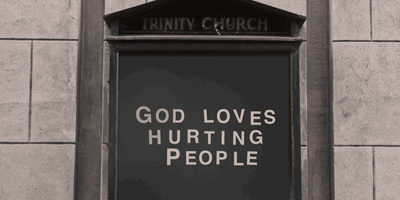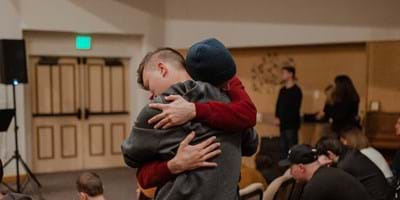The Bible records for us, in Luke chapter 15, the story of the younger son of a rich landowner who decides that the restrictions of his father’s estate are cramping his style and limiting his fun. Unable to wait until his dad actually dies, when he would logically and rightfully receive his inheritance, he goes to the bank of dad with his ungrateful and unsavoury proposal.
“Dad,” he says, in effect, “I would be better off with you dead but I can’t wait for that, give me what will be mine now so that I can get away and live my life as I please.”
Charming.
Absconding from the family home, abdicating his responsibilities and absenting himself from his father’s life, he goes to the big smoke to waste his father’s hard-earned cash on prodigal living and prostitutes. All very well until a famine strikes the land. He becomes the living example of Proverbs 28:19, which says, “he who tills his land will have plenty of bread, but he who follows frivolity will have poverty enough!”
Destitute of wealth, deserted by his friends and discarded by high society, the prodigal’s thoughts turn homeward. The servants in his father’s house knew neither poverty nor hunger. There was bread . . . enough bread . . . enough bread with some left over. Coming to an end of himself, he swallows his pride, prepares his speech and begins the long walk home. Verses 18 and 19 let us in on his repentant rehearsal, “I will arise and go to my father, and will say to him, ‘Father, I have sinned against heaven and before you and I am no longer worthy to be called your son. Make me like one of your hired servants.’”
The cheek of it. Would you have given him a job? Probably not. But how does the father respond? Verse 20 tells us that “when he was still a great way off, his father saw him and had compassion, and ran and fell on his neck and kissed him”.
This story speaks not only to the hope of family reunion in cases of estrangement but more generally to the whole story of humankind. Who kisses the person who wants them dead and out of the way? Who hugs someone covered in sweat, dust and dung? Who clothes the naked, feeds the hungry, and forgives the penitent prodigal, celebrating his return? Only God, the heavenly Father, loves like this.
The picture of a favoured son in his wealthy father's home really takes us back to the beginning of time, when God placed our forefather Adam in a garden paradise providing all that he could ever need . . . with just one condition: “you shall not eat [of the fruit of that tree]” (Genesis 2:17). Deceived by Satan, and drawn to disobedience by the sinful desire of his own heart to grasp at what was uniquely God’s, Adam broke the commandment and in that instant tainted all who have come after him.
Rebelling against the constraints in God’s “garden” we, too, break His rules and abandon God Himself, certain that just over the horizon lies fulfillment in all that He has held back from us. God calls this rebellion sin. Just like the prodigal son, “All we like sheep have gone astray; we have turned, every one, to his own way” (Isaiah 53:6). What was the end of that way for the rebel? Starvation and certain death unless he changed his ways. We too face certain death as a result of our rebellion. The Bible states clearly, “The soul who sins shall die” (Ezekiel 18:20) and, “the wages of sin is death” (Romans 6:23).
What, then, should you do as you contemplate the reality of your own sin and the certainly of the judgement that lies ahead? You can learn from the life of the prodigal. He comes to the end of himself. He remembers his father’s home. He gets up and heads back, confessing that he has sinned against heaven (God) and his father, asking only for mercy.
You, too, need to come to the end of yourself, recognizing that you cannot save yourself. Listen to what the Bible teaches about God and His view of your sin. Make a decision to get up and retrace your steps back to God, confessing that you have sinned against Him and asking Him to have mercy on you on the basis of the death of the Lord Jesus Christ as your substitute. When you take these steps you can be sure that you will be welcomed with open arms and blessed beyond all reasonable expectation by a Father who is scanning the horizon looking for any and all who will make their way back to Him.
God loves all of us, even the most undeserving. No matter what you have done, or how far you have wandered from Him, He is waiting to welcome you home.






























